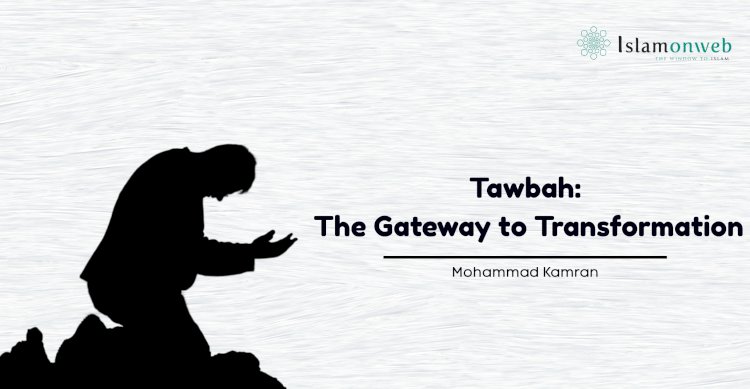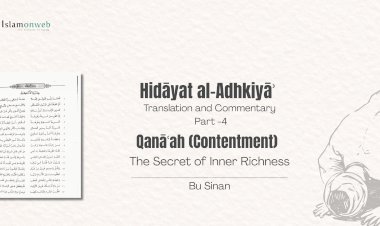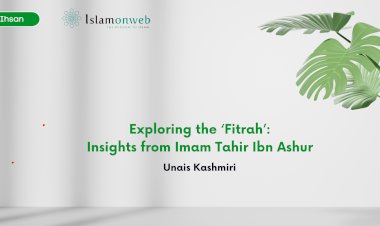Tawbah: The Gateway to Transformation
According to the classical Sufi manual Hidāyatu al-Azkiyā ilā Ṭarīqi al-Awliyāʾ, authored by Imām Zaynuddīn al-Makhḍūm al-Kabīr bin ʿAlī al-Maʿbarī al-Malībārī al-Shāfiʿī (raḥimahu’Llāh), every seeker who aspires to walk the spiritual path must uphold nine essential commandments. Interestingly, among these commandments, one that holds a foundational place is tawbah — repentance.
In its literal sense, tawbah (التوبة) derives from the Arabic root rajʿa (رجع), which means “to return.” In the context of the Sharīʿah, it refers to turning away from sin and returning to obedience and righteousness — a journey from disobedience to divine nearness.
The Conditions of Genuine Tawbah
Imām Zaynuddīn al-Makhḍūm outlines four essential conditions for tawbah to be accepted by Allah ﷻ. Without fulfilling these conditions, repentance remains incomplete and insincere:
- Sincere Regret for All Sins: The individual must feel deep remorse (nadm) for all transgressions, not just a specific one. The heart must ache for having disobeyed the Lord.
- Firm Resolve Never to Return: One must make a solemn commitment and internal pledge never to repeat the sin again.
- Immediate Abandonment of Sin: The sinner must halt all sinful actions and stay away from anything that could lead them back to transgression.
- Restitution of Rights: If the sin involved harming others or violating their rights, the individual must ensure that justice is restored — by returning what was wrongfully taken or seeking forgiveness from those wronged.
Imām Zaynuddīn al-Makhḍūm al-Kabīr (raḥimahu’Llāh) composed the conditions of tawbah in a succinct and memorable Arabic verse:
اطلبْ متاباً بالنَّدامةِ مُقلِعاً
وبعزمِ تركِ الذنبِ في ما استقبلا
وبراءةٍ من كلِّ حقٍّ آدمِيٍّ
ولهذهِ الأركانِ فارعِ وكمِّلا
Seek repentance with remorse and cessation,
And a firm resolve not to return to transgression.
And free yourself from every human’s due right—
Observe these four pillars and perfect them aright.
The Imām affirms that unless these four conditions are met, repentance will not be accepted. This aligns with the consensus of many classical scholars such as Imām al-Nawawī and Imām Ibn Rajab al-Ḥanbalī, who emphasised that tawbah is not merely a verbal act but a spiritual transformation rooted in sincerity, resolve, and ethical correction.
Tawbah in the Qur’ān and Sunnah
The virtue of tawbah (repentance) is emphasised throughout the Qur’ān and Sunnah, showcasing it not only as a moral act but as a spiritual station beloved to Allah ﷻ.
Qur’ānic Foundations
Allah ﷻ says in Sūrat al-Baqarah (2:222):
إِنَّ اللَّهَ يُحِبُّ التَّوَّابِينَ وَيُحِبُّ الْمُتَطَهِّرِينَ
“Indeed, Allah loves those who are constantly repentant and those who purify themselves.”
This āyah elevates the status of the penitent (tawwābūn) to one of divine love. The emphasis on continuous repentance suggests that turning back to Allah is not a one-time event, but a lifelong spiritual discipline. The mention of purification immediately after repentance also reflects the interconnectedness between inner and outer purity in Islam.
Another powerful call to repentance is found in Sūrat al-Nūr (24:31):
وَتُوبُوا إِلَى اللَّهِ جَمِيعًا أَيُّهَ الْمُؤْمِنُونَ لَعَلَّكُمْ تُفْلِحُونَ
“And turn to Allah in repentance, all of you, O believers, that you might succeed.”
Here, repentance is framed not only as a moral responsibility but as a prerequisite for falāḥ (true success). It is a collective command, reinforcing the idea that all believers — regardless of piety — are in constant need of Allah’s forgiveness.
Prophetic Teachings
The Prophet ﷺ also underscored the immense value of tawbah in his ḥadīths. One of the most frequently cited is:
التَّائِبُ مِنَ الذَّنْبِ كَمَنْ لاَ ذَنْبَ لَهُ
“The one who repents from sin is like one who has no sin.”
— (Sunan Ibn Mājah, 4250; graded ḥasan by al-Albānī)
This ḥadīth offers profound hope: sincere repentance erases the spiritual weight of sin entirely, as though it never occurred.
Moreover, the Prophet ﷺ is reported to have said:
وَاللَّهِ إِنِّي لَأَسْتَغْفِرُ اللَّهَ وَأَتُوبُ إِلَيْهِ فِي الْيَوْمِ أَكْثَرَ مِنْ سَبْعِينَ مَرَّةً
“By Allah, I seek Allah’s forgiveness and turn to Him in repentance more than seventy times a day.”
— (Ṣaḥīḥ al-Bukhārī, 6307)
Despite being sinless, the Prophet ﷺ exemplified tawbah as a daily spiritual act, highlighting its role in sustaining the heart’s connection with the Divine.
The Sunnah of the Prophet ﷺ complements the Qur’ānic invitation to tawbah with striking metaphors and heart-stirring narratives that reveal the extent of Allah's ﷻ mercy. These narrations not only offer hope to the sinner but also instruct the believer on the deep spiritual honour found in sincere repentance.
Allah’s Constant Invitation to Repentance
Abū Mūsā al-Ashʿarī (RA) reported that the Prophet ﷺ said:
إِنَّ اللَّهَ تَعَالَى يَبْسُطُ يَدَهُ بِاللَّيْلِ لِيَتُوبَ مُسِيءُ النَّهَارِ، وَيَبْسُطُ يَدَهُ بِالنَّهَارِ لِيَتُوبَ مُسِيءُ اللَّيْلِ، حَتَّى تَطْلُعَ الشَّمْسُ مِنْ مَغْرِبِهَا
“Indeed, Allah extends His Hand during the night to accept the repentance of those who sinned by day, and extends His Hand during the day to accept the repentance of those who sinned by night — until the sun rises from the west.”
— (Ṣaḥīḥ Muslim, 2759)
This ḥadīth paints a powerful image: Allah ﷻ, in His infinite mercy, does not restrict forgiveness to moments of worship but opens the door of repentance throughout every hour of the day and night. It also subtly reminds us of the approaching Qiyāmah, as the rising of the sun from the west marks the final closure of this door.
The Joy of Allah ﷻ at His Servant's Return
Abū Saʿīd al-Khudrī (RA) narrated that the Prophet ﷺ said:
“Allah is more pleased with the repentance of His servant than one of you who, after losing his camel in a desert, lies down under a tree to wait for death — only to find it suddenly reappearing before him. He exclaims out of overwhelming joy: ‘O Allah, You are my servant and I am Your Lord’ — making a mistake due to sheer happiness.”
— (Ṣaḥīḥ Muslim, 2747)
This narration communicates not only Allah’s readiness to forgive but also the overwhelming divine joy that surpasses even human expressions of relief. The emotional power of the analogy stirs hearts and strengthens hope in divine mercy.
A Legendary Tale of Repentance: The Killer of a Hundred Souls
Among the most famous prophetic narrations on tawbah is the account of a man who committed the gravest sins — yet still found redemption:
The Prophet ﷺ said:
“There was a man who had killed ninety-nine people. He asked the people of his town, ‘Is there anyone who can guide me?’ They directed him to a monk. He told the monk of his crimes and asked if he could repent. The monk said, ‘No!’ So the man killed him too, completing one hundred.”
“Still seeking redemption, he approached a scholar and asked the same question. The scholar replied, ‘Who can stand between you and repentance? But you must leave your sinful land and migrate to a place where people worship Allah.’”
“So the man set out on the journey of repentance but died on the way. Angels of mercy and punishment disputed over him. Allah sent another angel in human form to judge between them. He instructed: ‘Measure the distance between where he died and the town he left and the town he was heading to.’ If he was closer to the town of righteousness, he would be saved. It was found that he was just closer to the town of righteousness, and thus, he was taken by the angels of mercy.”
— (Ṣaḥīḥ al-Bukhārī, 3470; Ṣaḥīḥ Muslim, 2766)
This narration teaches that it is never too late to return — even for the most grievous sinner. It also affirms that niyyah (intention) matters immensely in the sight of Allah ﷻ. The man died not having reached his new land, but Allah accepted his sincere will to change.
The Repentance of Prophet Ādam (ʿalayhi as-salām)
The story of Prophet Ādam’s (ʿalayhi as-salām) repentance is one of the most moving accounts in the Qur’ān — a narrative that echoes the human journey of fall, regret, and return. It is a tale not of despair, but of divine compassion and the eternal promise of mercy.
When Allah ﷻ created Ādam, He honoured him with knowledge, gave him life from His spirit (rūḥ), and placed him in the Garden — a place of serenity, beauty, and pure joy. Everything he needed was within reach, and he was given companionship through Ḥawwāʾ (Eve), who shared with him the gift of divine closeness.
Yet, as part of their trial, Allah ﷻ commanded:
وَلَا تَقْرَبَا هَٰذِهِ ٱلشَّجَرَةَ فَتَكُونَا مِنَ ٱلظَّـٰلِمِينَ
“Do not approach this tree, lest you become among the wrongdoers.”
— Sūrat al-Baqarah (2:35)
But Iblīs, out of envy and arrogance, whispered false promises to them — promising immortality and an angelic station:
فَوَسْوَسَ لَهُمَا ٱلشَّيْطَـٰنُ لِيُبْدِىَ لَهُمَا مَا وُورِىَ عَنْهُمَا مِن سَوْءَٰتِهِمَا
“Then Shayṭān whispered to them to expose what was hidden of their shame…”
— Sūrat al-Aʿrāf (7:20)
Ādam and Ḥawwāʾ fell to this deception and tasted from the forbidden tree. In that moment, the light of their innocence dimmed. They realised their error, felt shame, and turned to Allah ﷻ with a heart-rending plea — one that became the timeless model of repentance:
قَالَا رَبَّنَا ظَلَمْنَآ أَنفُسَنَا وَإِن لَّمْ تَغْفِرْ لَنَا وَتَرْحَمْنَا لَنَكُونَنَّ مِنَ ٱلْخَـٰسِرِينَ
“Our Lord, we have wronged ourselves. If You do not forgive us and have mercy on us, we will certainly be among the losers.”
— Sūrat al-Aʿrāf (7:23)
This āyah encapsulates the essence of tawbah: acknowledging one’s fault (ẓulm), pleading for forgiveness (maghfirah), and recognising that without Allah’s mercy (raḥmah), we are lost.
Divine Forgiveness and Human Descent
Allah ﷻ, in His overwhelming mercy, accepted their tawbah. Yet, as a consequence of their misstep, they were sent down to Earth — not as punishment alone, but as part of the divine decree for human succession:
قَالَ ٱهۡبِطُواْ بَعۡضُكُمۡ لِبَعۡضٍ عَدُوّٞۖ وَلَكُمۡ فِي ٱلۡأَرۡضِ مُسۡتَقَرّٞ وَمَتَـٰعٌ إِلَىٰ حِينٖ
“He said, ‘Descend — some of you being enemies to others. And you will have upon the earth a place of settlement and provision for a time.’”
— Sūrat al-Baqarah (2:36)
This descent marked the beginning of human life on Earth — a life interwoven with trial, learning, and the constant opportunity to return to Allah through tawbah.
Lessons from Ādam’s Repentance
The repentance of Prophet Ādam (ʿalayhi as-salām) is not just a story of the past. It is a spiritual compass for every human soul:
- Mistakes are part of our nature, but arrogance like that of Iblīs leads to downfall, while humility like Ādam's leads to nearness.
- The door of mercy is never closed, so long as one turns back with sincerity and regret.
- Allah’s mercy precedes His wrath, and His acceptance is promised to those who seek it.
As Imām Ibn al-Qayyim wrote:
“The sin which leads you to humility and repentance is better than the act of worship that leads to arrogance.”
— [Madārij al-Sālikīn]
Imām Zaynuddīn al-Maʿbarī al-Shāfiʿī closes the discourse on tawbah with a timeless poem:
والتوب مفتاح لكل طاعة
وأساس كل الخير أجمع أشملا
Interpretation:
And the key to all obedience is repentance;
It is the very foundation of every good in its entirety.
In this concise yet profound couplet, the Imām affirms that tawbah is not merely the beginning of the path — it is the gateway to every act of worship (ṭāʿah) and the essence of all righteousness. The term ajmaʿa ashmalā conveys wholeness and comprehensiveness, signifying that no good deed is truly rooted unless it springs from a heart softened by sincere repentance.
This poetic wisdom encapsulates the message of this entire article: tawbah is not just for sinners; it is the rhythm of every seeker’s journey. It revives the soul, realigns the heart, and renews the covenant between the servant and His Lord.
May we become among those whom Allah ﷻ describes as:
إِنَّ ٱللَّهَ يُحِبُّ ٱلتَّوَّابِينَ
“Indeed, Allah loves those who constantly repent.”
— Sūrat al-Baqarah (2:222)
About the author:
Mohammad Kamran is a Senior Secondary Student at Darul Huda Islamic University West Bengal Campus.
Disclaimer
The views expressed in this article are the author’s own and do not necessarily mirror Islamonweb’s editorial stance.

























Leave A Comment